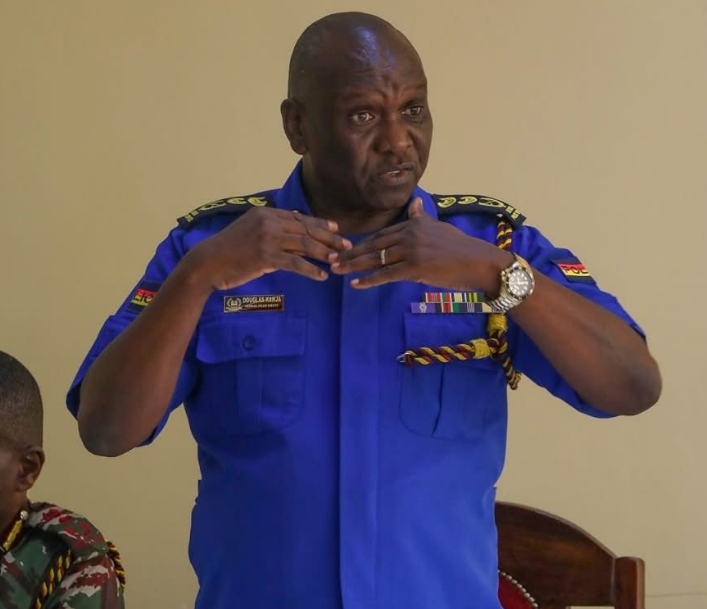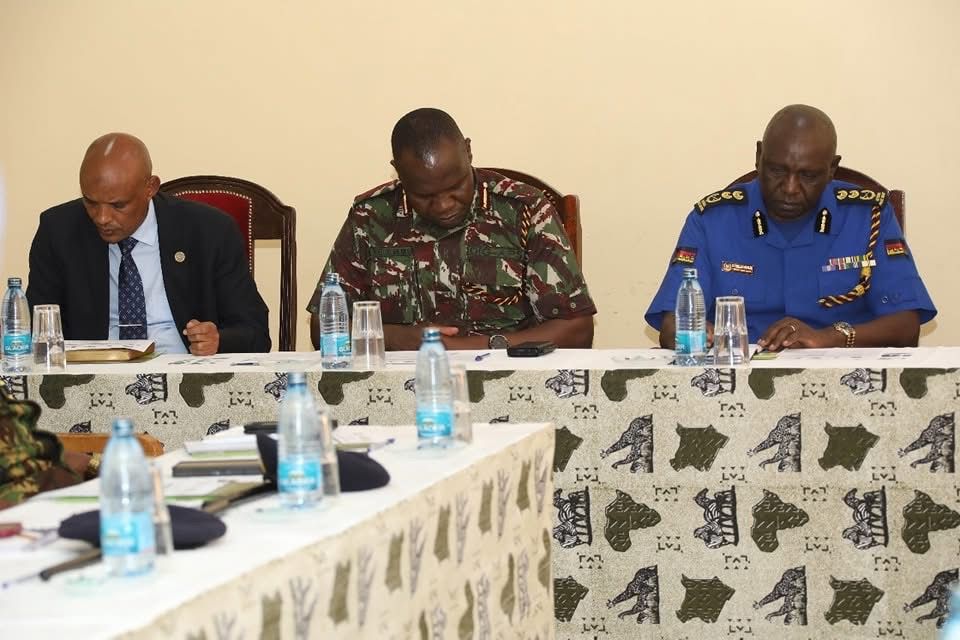

Inspector General of Police Douglas Kanja wants police to be trained on Customer Service Excellence as part of ongoing transformation in the service.
Kanja was on Thursday, December 5, 2024, briefed on the rollout plan of the Customer Service Excellence Program for the National Police Service at the Kenya School of Government (KSG)- Lower Kabete.
Kanja underscored the importance of training in Customer Service as an impetus to his vision of transforming police stations in Kenya to be centres of excellence for police operations and service delivery to the public.
Kanja underscored the importance of training in Customer Service as an impetus to his vision of transforming police stations in Kenya to be centres of excellence for police operations and service delivery to the public.
Lack of skills on how to respond and handle the public has had a negative impact on the service and the public has been a negative impact on the service.
NPS generally has poor customer relations with the public who are their clients.
This has necessitated the need to train the team on the issue.
“How we relate with the public determines a lot in the results we get. That is why we need this training to help us in many ways,” said Kanja.
The Director General KSG Prof. Nura Mohamed and Huduma Center CEO Benjamin Chilumo who were also present during the session, reassured the IG for their commitment to collaboration with police to build NPS capacity in customer service.
Kanja was accompanied by the Deputy Inspector General for Administration Police Gilbert Masengeli, the director, Director DCI Mohamed Amin, NPS Accounting Officer, Bernice Lemedeket and NPS Directors.
The NPS, Kenya Prisons and National Youth Service have rolled out several reforms to help them transform in general.
President William Ruto revealed that the government will require Sh106 billion to implement the reforms within the services.
Ruto said that the funds will be allocated to address key challenges faced by the services, career progression, digitisation of records including police OBs and purchase of new equipment.
Out of the money, Sh22 billion will finance improvement in the compensation package for officers while Sh37 billion will go to the upgrading of the hardware and welfare reforms and Sh45 billion is required to implement modernisation of the services.
Ruto said the National Treasury will provide part of the funds while the rest will be catered for by investors.
"We appreciate the considerable financial implications of the full implementation of the changes prescribed by the Maraga task force. It is estimated that it will cost Sh106 billion to fully actualise these recommendations," he said.
Ruto revealed that the government had procured 1,000 e-vehicles for police officers to enhance e-mobility across the country.
He added that plans were also in place to construct 32,000 houses for the security officers, highlighting how some law enforcement officers often live in deplorable conditions.
"Some of our officers live in houses that are not different from the prisons themselves. That cannot be the case. That's why we extended the housing program to include institutional houses for our military, police, NYS and prisons," he remarked.
The reforms were proposed by a task force led by former Chief Justice David Maraga.

Ruto made the remarks during the launch of the Strategic Framework for Implementation of reforms in the services.
The Framework provides an integrated approach to reform priorities in a strategic and coordinated manner to ensure coherence among reform institutions.
Of all the police reform initiatives, this is the first that has a Strategic Framework for implementation developed by the relevant institutions.
The National Taskforce on Improvement of the Terms and Conditions of Service and other Reforms for the National Police Service (NPS), Kenya Prisons Service (KPS) and National Youth Service was appointed by Ruto on December 21, 2022.
The task force was chaired by Chief Justice (Emeritus), David Maraga its terms of reference were to identify the legal, policy, administrative, institutional and operational constraints on effective service delivery and to recommend solutions.
It was also to review the terms and conditions of service for the three Services and recommend their improvement.
The task force undertook its work and presented its final report to Ruto on November 4, 2023.
Under this, the National Steering Committee chaired by the Principal Secretary of Internal Security and National Administration, Dr. Raymond Omollo was gazetted on September 13, 2024 and tasked to, among other key deliverables, develop an Implementation Framework to guide the reform process.
A national inter-agency team was formed to guide and start the implementation process.
The National Inter-Agency Steering Committee led by the Ministry of Interior and National Administration includes senior officials of the Ministry of Public Service, the National Treasury, the Salaries and Remuneration Commission (SRC) and the National Police Service Commission (NPSC).
Others include officers drawn from the Independent Policing Oversight Authority (IPOA), Public Service Commission (PSC), National Youth Service (NYS) Council, the Judiciary, and the Ethics and Anti-Corruption Commission (EACC) among others.
Chaired by Omollo, the committee started its work with the unpacking of at least 200 recommendations contained in the report.


